What’s driving employee satisfaction and loyalty in 2025? The answer starts with internal communication. Get the data behind the shift.

Employee experience, HR & internal comms
Insights and Inspiration for everyone in HR, IC, and IT that will help you foster an outstanding employee experience
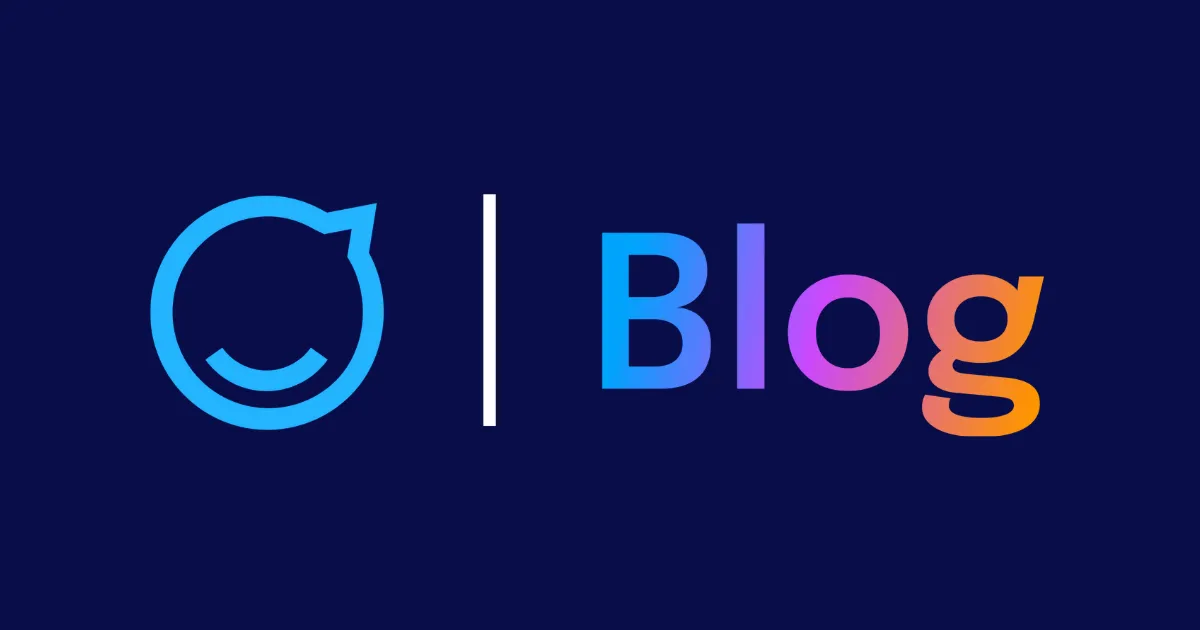
What’s driving employee satisfaction and loyalty in 2025? The answer starts with internal communication. Get the data behind the shift.

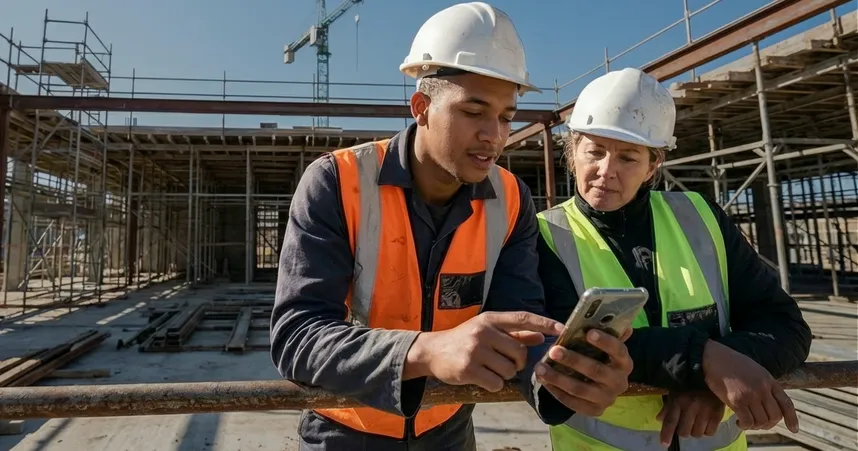
Struggling with employee app adoption? Learn how designing your employee app for frontline workers can improve engagement, efficiency, and communication.
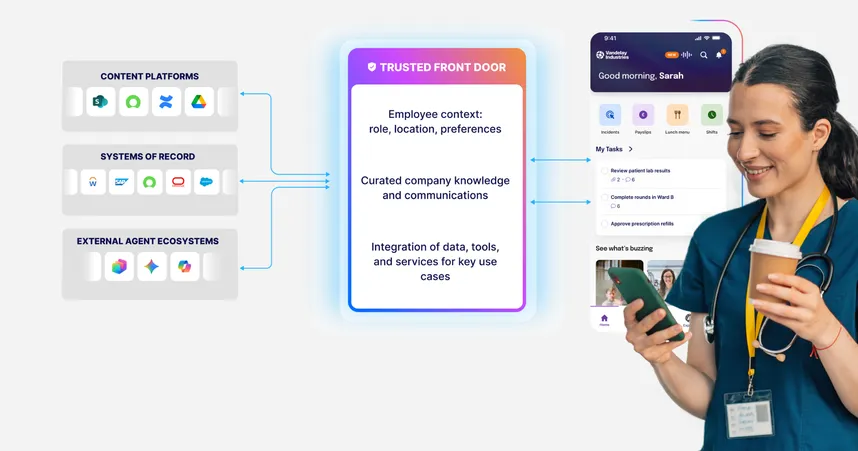
AI hallucinations in intranet answers happen when models access conflicting or outdated content. Learn how governance, retrieval, and guardrails prevent enterprise risk.
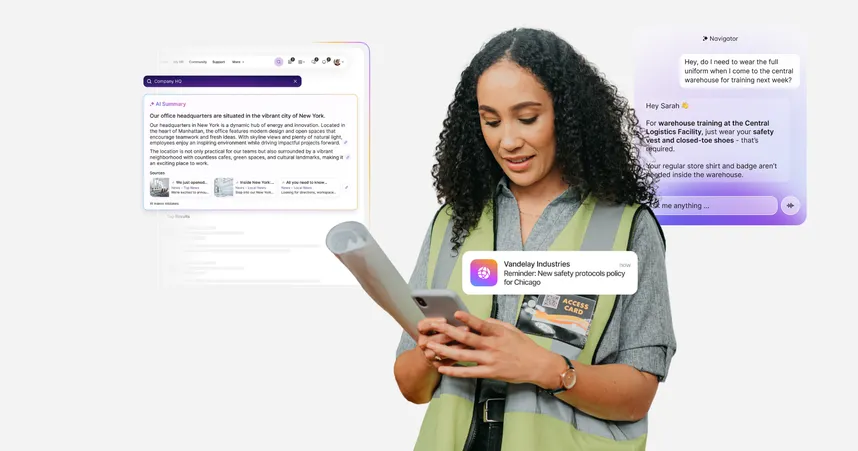
Move beyond feature checklists. This 2026 enterprise intranet guide compares 10 leading platforms on adoption architecture, governance depth, and AI reliability — the factors that determine long-term success at scale.
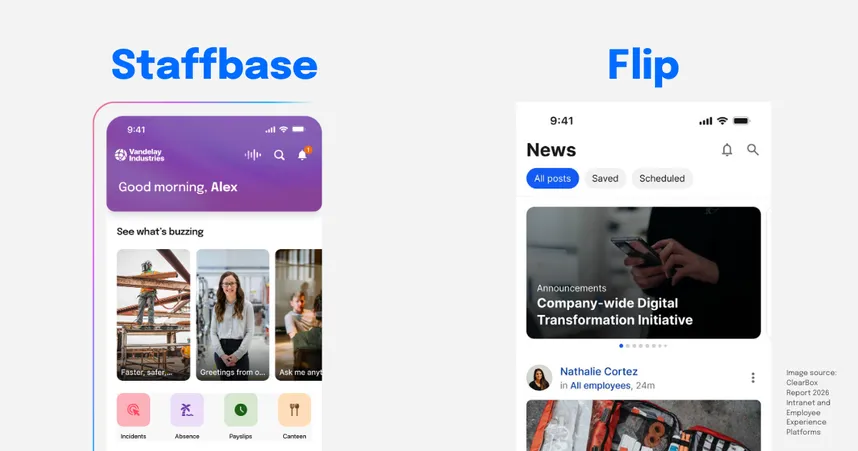
A frontline employee app can look “done” on launch day — then outgrow itself 12 months later. This Staffbase vs. Flip comparison breaks down what still holds when you add intranet, email, governance, and AI reliability at scale.
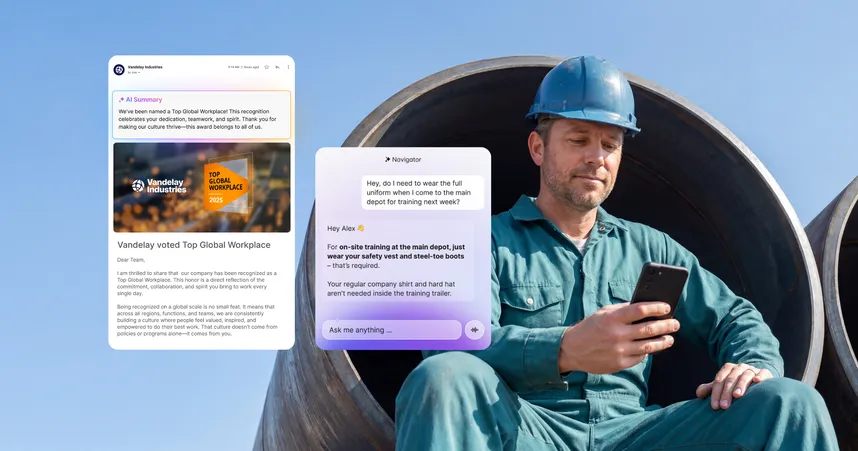
When does an intranet with an AI assistant deliver real business impact — and when does it amplify confusion? Learn the structural conditions that determine whether your AI chatbot intranet improves employee experience or erodes trust.

Learn what a heuristic evaluation is and how to run one to reveal what’s holding your intranet back and how to prioritize changes that improve engagement and self-service.
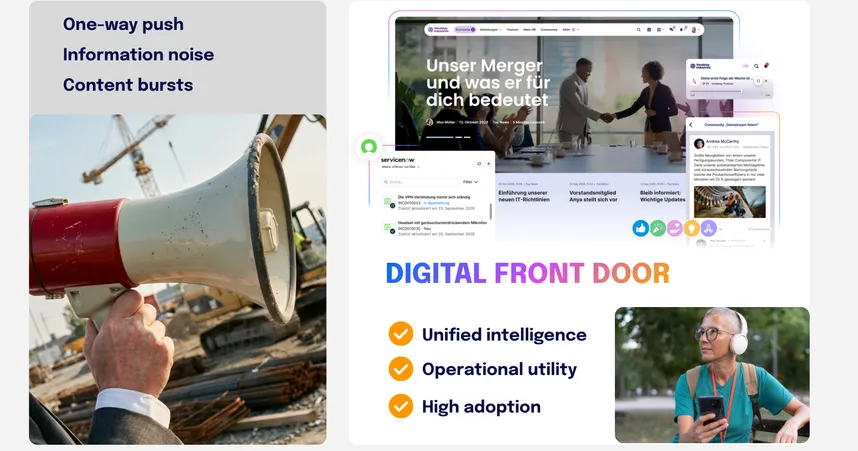
Evaluating Firstup vs. Staffbase in 2026? Learn how a megaphone-style distribution platform compares to a unified front door built for integration, AI-powered navigation, and frontline adoption.
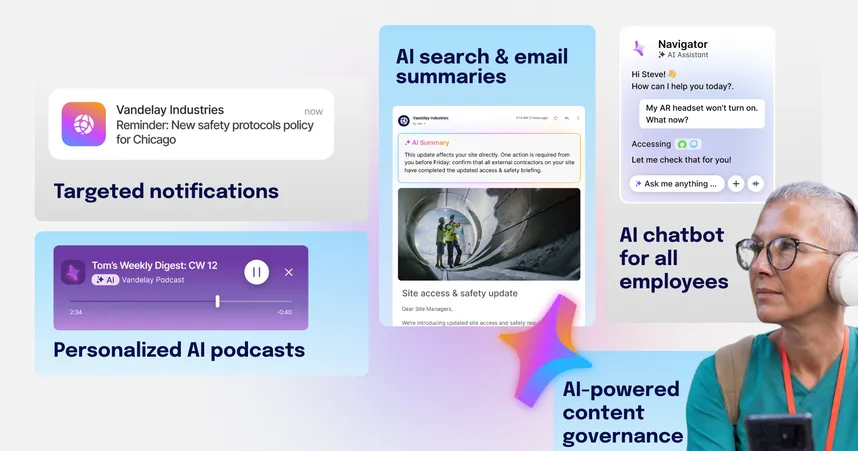
Discover the key features of an AI intranet for enterprise organizations in 2026 — and how governance, trust, and frontline access turn AI into safe, actionable answers.
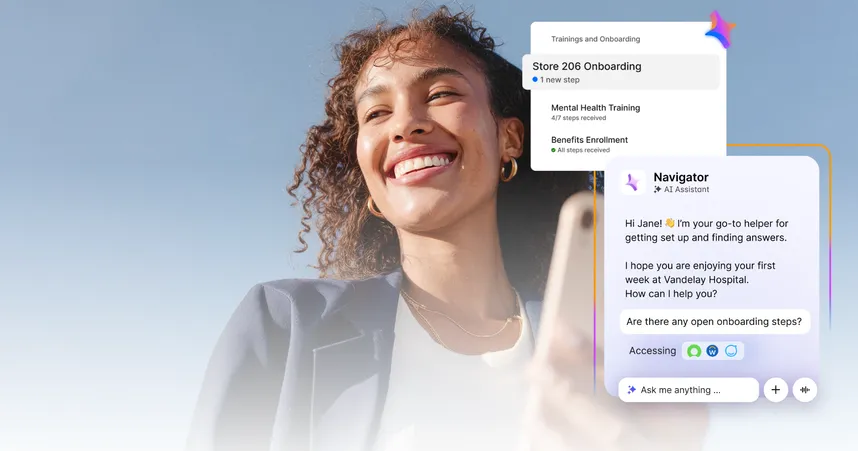
Employee onboarding fails in 2026 when employees don’t know what’s official or safe to act on. Explore how a modern, AI-native intranet supports onboarding success by serving as a Single Source of Truth to sustain confidence and trust beyond Day 1.

How can you reach employees without email access? Learn how enterprise organizations use an employee app to create relevance, save time, and reliably engage frontline workers.

Don't let AI distort your message. Utilize the Durable Writing™ standard to ensure your strategy survives the AI era. Plus, get our free "Durable Writing" system prompt.
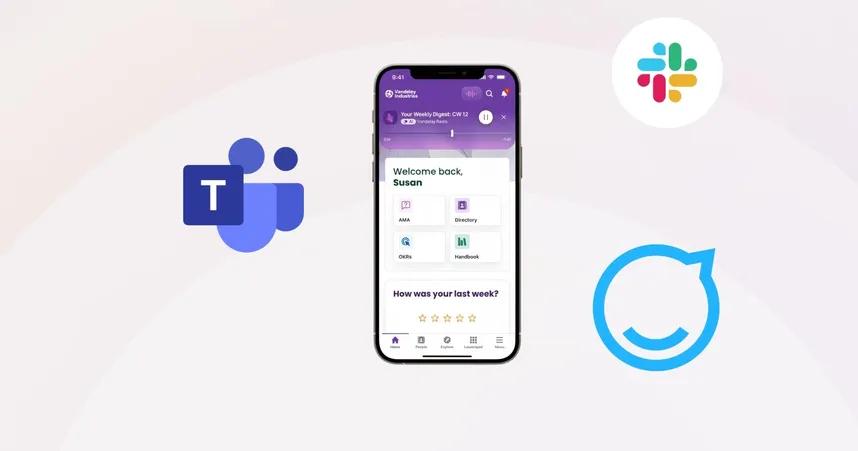
With AI now answering employee questions directly, the distinction between intranets and collaboration tools protects trust and prevents wrong answers from spreading at scale. Learn why you still need an intranet in 2026 — even if you already use Teams or Slack.